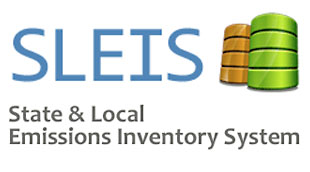Your Guide to Small Business Assistance: Air Permit Applications & Emissions Reporting
Your Guide to Small Business Assistance: Air Permit Applications & Emissions Reporting

Table of Contents
- Who Has to Report Using These Systems
- Benefits to Electronic Submission
- Permit Application and Air Emission Inventory Assistance
- Expert Advice
- Here to Help
Did you know that on January 1, 2023, air permit applications and air emissions reporting documents are required to be submitted electronically?
While you have had the ability to submit electronically for a while now, the Department of Natural Resources (DNR) will soon be requiring electronic submission of air permit applications through the Iowa Environmental Application System for Air (Iowa EASY Air) and emission inventories via the State and Local Emissions Inventory System (SLEIS).
Who Has to Report Using These Systems?
Any Iowa business that is part of the air quality regulated community and has to complete and file reports, notifications and permit applications.
Iowa EASY Air is the electronic permit application system for construction and Title V operating permit applications. In Iowa, all new or modified equipment that emits a regulated air pollutant must have a construction permit unless otherwise exempt.
SLEIS is a web-based emissions inventory reporting system used by industry to manage facility and equipment information and to report point source emissions data to DNR.
TIP: The IWRC and DNR will contact any business that is required to report.
Benefits to Electronic Submission
Iowa EASY Air and SLEIS are both designed to make reporting and submitting applications easy, fast and accurate.
Other benefits include:
- Reporting is easier and more efficient
- Can submit information from any location at any time
- Increases data accuracy
- Speeds up DNR’s ability to issue permits
- Saves time & money for businesses & DNR
Permit Application and Air Emission Inventory Assistance
The Iowa DNR has a number of resources and tools available on their website, however, if you are looking for individual, one-on-one assistance, than Iowa Air Emissions Assistance Program (IAEAP) staff is here to help.
Note: IAEAP is part of the Iowa Waste Reduction Center at the University of Northern Iowa.
IAEAP staff is available to provide FREE one-on-one training and assistance to businesses with less than 100 employees required to submit their minor source emissions inventory in SLEIS or to apply for a new or modify an existing air quality permit using Iowa EASY Air.

Minor Source Emissions Inventory
The IAEAP provides education and guidance and assists small businesses with their minor source emissions inventory including editing and submitting data in the SLEIS program. In addition to providing direct, one-on-one assistance, the IAEAP has a variety of tools and resources available on our website including emissions calculators and tutorials (https://iwrc.uni.edu/environmental-assistance/msei).
TIP: Prior to contacting the IAEAP for assistance with your emissions inventory, it would be beneficial to have a basic understanding of the processes present at your facility.

Air Quality Permitting
The IAEAP staff provides education and guidance related to Iowa air permitting requirements. IAEAP staff is available to assist businesses in making permit determinations and to answer questions related to the permitting process. For facilities required to modify an existing permit or obtain a permit for a new source, the IAEAP can assist small businesses with the requirements for submitting permit applications through Iowa EASY Air. The IAEAP has a variety of tools and resources available on our website (https://iwrc.uni.edu/environmental-assistance/iaeap).
Expert Advice
DON’T WAIT UNTIL THE DEADLINE - The Emissions Inventory deadline is May 15. Plan ahead to request assistance. Allowing yourself enough time to collect the necessary data, calculate your emissions and get everything entered and submitted into SLEIS is important.
BE PROACTIVE - If new equipment is added or modifications to existing equipment is made, make sure to think ahead and review if air quality permitting requirements are needed or existing permits need to be updated.
Here to Help
The goal of the IAEAP is to help businesses understand the process and what is required to maintain compliance. Our staff walks through each program, answers questions and ensures information is accurately entered.
We are happy to assist any small business, including those with little to no background on environmental regulations and requirements.
To take advantage of this service, contact us or visit www.iwrc.uni.edu.


